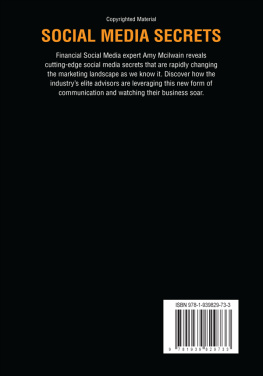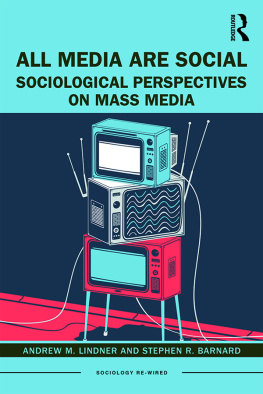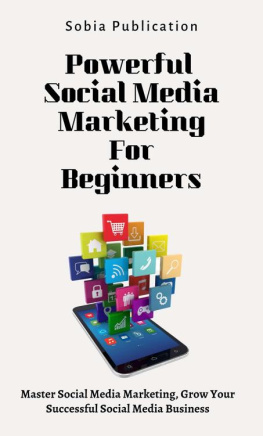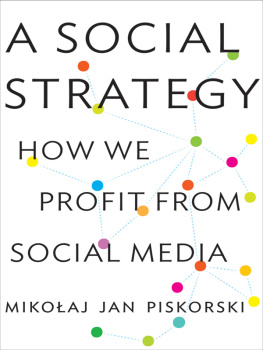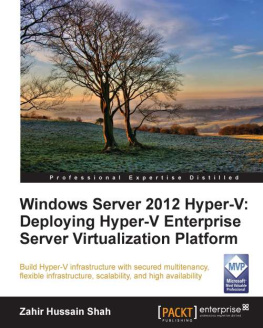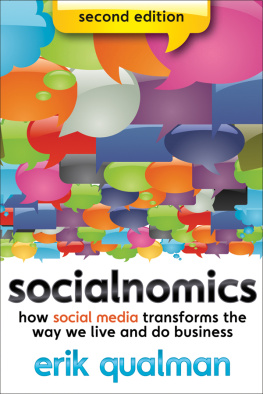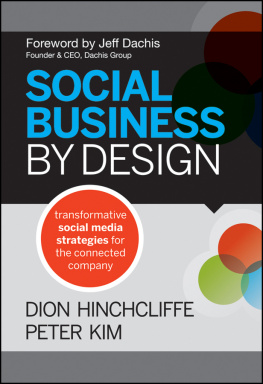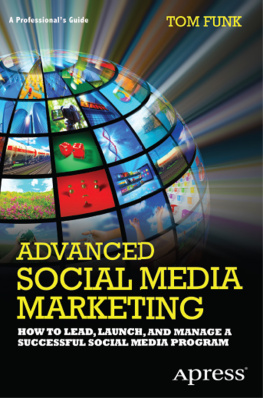THE HYPER-SOCIAL ORGANIZATION
ECLIPSE YOUR COMPETITION BY LEVERAGING SOCIAL MEDIA
FRANCOIS GOSSIEAUX
EDWARD K. MORAN


Copyright 2010 by Francois Gossieaux and Edward K. Moran. All rights reserved. Except as permitted under the United States Copyright Act of 1976, no part of this publication may be reproduced or distributed in any form or by any means, or stored in a database or retrieval system, without the prior written permission of the publisher.
ISBN 978-0-07-174118-7
MHID 0-07-174118-6
The material in this eBook also appears in the print version of this title: ISBN 978-0-07-171402-0, MHID 0-07-171402-2.
All trademarks are trademarks of their respective owners. Rather than put a trademark symbol after every occurrence of a trademarked name, we use names in an editorial fashion only, and to the benefit of the trademark owner, with no intention of infringement of the trademark. Where such designations appear in this book, they have been printed with initial caps.
McGraw-Hill eBooks are available at special quantity discounts to use as premiums and sales promotions, or for use in corporate training programs. To contact a representative please e-mail us at bulksales@mcgraw-hill.com.
The views expressed herein are those of the individual authors in their personal capacity, and do not represent the views, positions or opinions of their respective employers, or any organizations with which the authors may be professionally affiliated.
TERMS OF USE
This is a copyrighted work and The McGraw-Hill Companies, Inc. (McGraw-Hill) and its licensors reserve all rights in and to the work. Use of this work is subject to these terms. Except as permitted under the Copyright Act of 1976 and the right to store and retrieve one copy of the work, you may not decompile, disassemble, reverse engineer, reproduce, modify, create derivative works based upon, transmit, distribute, disseminate, sell, publish or sublicense the work or any part of it without McGraw-Hills prior consent. You may use the work for your own noncommercial and personal use; any other use of the work is strictly prohibited. Your right to use the work may be terminated if you fail to comply with these terms.
THE WORK IS PROVIDED AS IS. McGRAW-HILL AND ITS LICENSORS MAKE NO GUARANTEES OR WARRANTIES AS TO THE ACCURACY, ADEQUACY OR COMPLETENESS OF OR RESULTS TO BE OBTAINED FROM USING THE WORK, INCLUDING ANY INFORMATION THAT CAN BE ACCESSED THROUGH THE WORK VIA HYPERLINK OR OTHERWISE, AND EXPRESSLY DISCLAIM ANY WARRANTY, EXPRESS OR IMPLIED, INCLUDING BUT NOT LIMITED TO IMPLIED WARRANTIES OF MERCHANTABILITY OR FITNESS FOR A PARTICULAR PURPOSE. McGraw-Hill and its licensors do not warrant or guarantee that the functions contained in the work will meet your requirements or that its operation will be uninterrupted or error free. Neither McGraw-Hill nor its licensors shall be liable to you or anyone else for any inaccuracy, error or omission, regardless of cause, in the work or for any damages resulting there from. McGraw-Hill has no responsibility for the content of any information accessed through the work. Under no circumstances shall McGraw-Hill and/or its licensors be liable for any indirect, incidental, special, punitive, consequential or similar damages that result from the use of or inability to use the work, even if any of them has been advised of the possibility of such damages. This limitation of liability shall apply to any claim or cause whatsoever whether such claim or cause arises in contract, tort or otherwise.
To my late mother, Antoinette Verelst Gossieaux, the first love of my life.
Francois
To my smallest, but most favorite tribe: Janet, Kelly, Eddie, Kate, and Grace.
Ed
CONTENTS
foreword
Hyper-Social Revolutions and Revelations
In the 1990s, with the advent of the Internet, there was a lot of buzz about how revolutionary the Internet was going to be. In my own field, marketing, everyone was thrilled about the possibility of selling things directly to consumers online, in a disinter-mediated fashion. E-commerce was the name of the game. And added to e-commerce were online advertising, Webvertising, and pay-for-content as the other big deals. Each was enthusiastically marketed as the Big Internet Revolution.
But time has proved these proclamations of business revolution to be wrong.
Although the ability of organizations to reach out to consumers in new ways has been extremely important, and has altered the way in which business has been done over the last decade, they really werent all that revolutionary in their execution or implications.
Activated by the burgeoning Internet, however, there was another revolution brewing. Drawing upon the Situationist philosophers for inspiration, the great Sufi anarchist poet Hakim Bey wrote in 1994, Meeting face-to-face is already the revolution.
Little did Bey seem to suspect that the Internet would bring some of the powerfully subversive social forces that arise when people gather away from their institutionalized circumstances into the homes of the mainstream. From where we stand today, it looks as if the bigger Internet revolution was not so much about organizations stretching out to reach consumers in new ways, but about consumers using the Internet to reach out and connect with one another in new, and endlessly increasing, ways.
Technologically facilitated social connection is the big revolution, the social movement, the transformation of our times. And yet, given that this is such an enormous change, we have a relative paucity of understanding of it.
Thats where the book you are holding in your hands comes in. Revolutionary times call for revolutionary thinking. What Francois Gossieaux and Edward K. Moran have written in this book is nothing less than a guidebook to this new revolution, an initial charting of this new terrain. More than that, it is an action plan that not only enlightens managers and everyone else about what to do in these exciting, ridiculously scary new times of transition, but why to do it.
And that explanation makes a big difference.
I realize that there is no shortage of books about the Internet or about new technology and business. Over the last 20 years, I have read literally hundreds of them. I have stacks of what I tend to quickly dismiss as shallow pop business management books. You know the ones. Some of them are filled with examples, but there is no connection between the examples, and no principles that emerge from them. Some of them are loaded with how-tos and tactics. But although they tell us what to do, we never understand why we should do it, and with technologys rapid pace of change, those tidbits of knowledge spoil more quickly than an opened carton of yogurt. Then there are the big-picture pop business books that promise to deliver a whole new way of thinking. But that way of thinking often tends to be composed of just one idea. Usually, its not even a great idea.
Academic books usually arent much better. You know the ones I am talking about? Those thick, erudite academic volumes, usually written by B-school professors, that use complex and rigorous research and strong, original thinking, but that cloak them in inaccessible language and abstract sentences forms? Often when I finish reading one chapter of one of these books, I can barely remember what it was I was supposed to have learned. And because they are so abstract and high-level, they rarely engage us with examples or tell real, functioning managers what it is that we are supposed to do.


